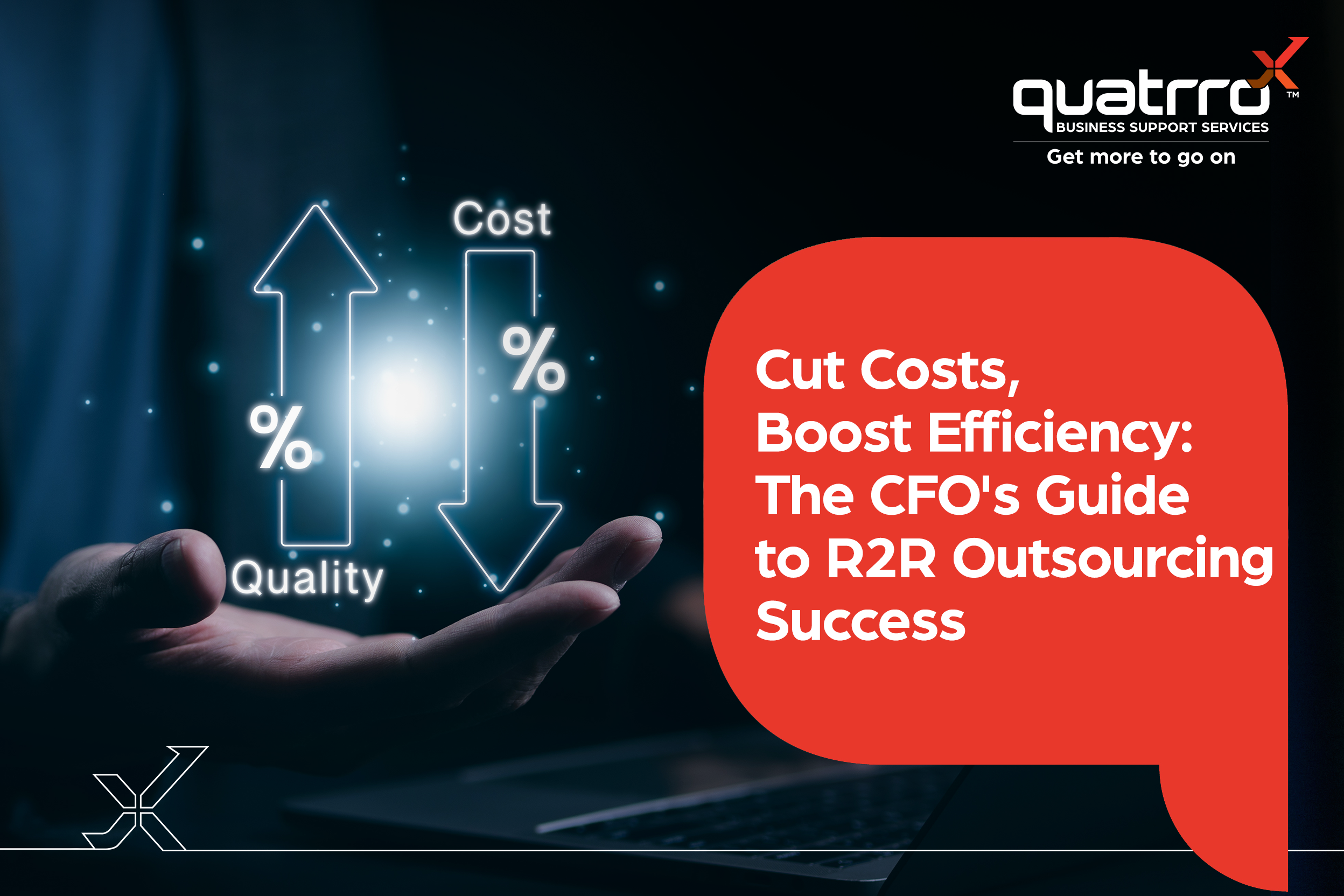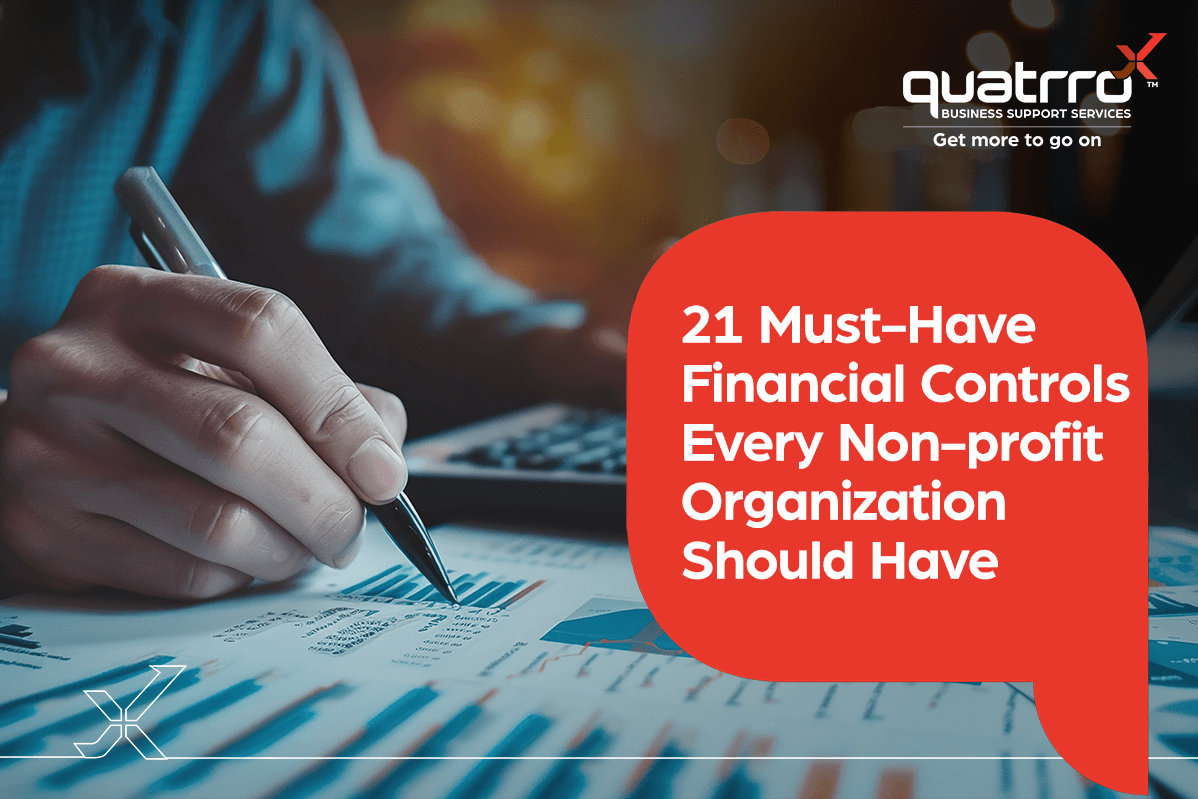Blog Details
Procure to Pay Transformation: Unlocking Growth Potential through Outsourcing
October 22, 2024

Conquer Economic Uncertainty: How P2P Outsourcing Streamlines Your Business
From supply chain disruptions to inflationary pressures, the global economic landscape always seems to offer businesses both risk and opportunities. To keep pace with these dynamics, businesses are increasingly focusing on optimizing efficiency and cost control. The objective, needless to say, is ensuring financial stability and long-term success.To unlock potential and build resilience, critical area businesses can focus on enhancing and improving their Procure-to-Pay (P2P) processes. The P2P process, also often referred to as Accounts Payable, in a nutshell, encompasses the entire lifecycle of a purchase, from identifying a need and requisitioning goods or services to receiving and making payment for that purchase. An optimally functioning P2P system streamlines operations, reduces costs, and improves supplier relationships.
However, these processes can also bring multiple challenges, such as inefficiencies, high costs, manual tasks, siloed information and lack of transparency. In fact, according to Quadient, the cost of processing a single invoice is equivalent to 30 minutes of employee labor. This provides a cost range of $12 to $35 per invoice, depending on the company’s location and what it pays for labor. Clearly, optimizing P2P processes is the first step towards significant cost savings, and this is where partnering with an outsourcing leader brings about a paradigm shift for companies looking to transform this area of their business!
Key Challenges
A few key challenges faced by organizations who don’t outsource P2P include:- Manual Processes and Absence of Automation: Manual tasks like invoice approvals, data entry, and purchase order creation take up a lot of time and are prone to errors. This typically leads to delayed payments, discrepancies in invoices, etc.
- Limited Visibility and Data Insights: Traditional ERP systems often lack robust P2P reporting and analytics capabilities. Therefore, businesses cannot gain real-time insights into spending patterns, identify cost-saving opportunities, or track supplier performance.
- Lack of Expertise and Resources: Without in-house expertise and the appropriate resources required to effectively manage complex P2P processes, businesses often fall back on traditional, sub-optimal approaches, leaving little room for cost reduction or efficiency gains.
Why Outsourcing Your P2P Processes is a Viable Solution
By outsourcing specific P2P functions to a qualified service provider, businesses can unlock a multitude of benefits, including:- Improved Cash Flow Management: With outsourcing this area of the business, cash flow and cash predictability can be improved significantly. The right outsourcing partner should be able to help you take advantage of payment discounts, negotiate better terms with your vendors and even help you outline payment schedules that will help you maximize your cash.
- Reduced Operational Risks: Typically, P2P processes are prone to inefficiencies because they are manual, and often lack visibility into spending, both of which can be detrimental to a business. Partnering with an outsource service provider can help eliminate these risks by leveraging that partner’s expertise and technology for your industry.
- Reduced Cycle Times: Outsourcing P2P processes can streamline workflows through automated solutions. This significantly reduces cycle times, from requisitioning to payment, thereby improving overall operational efficiency and vendor relations.
- Scalability and Flexibility: Partnering with an outsourcing major enables the business to scale its procurement operations, as needed. The outsourcing provider’s infrastructure and resources should be able to accommodate the client’s requirements, thus ensuring the P2P function remains efficient and adaptable through periods of growth.
Transforming P2P Processes: Best Practices
While the core benefits of P2P outsourcing remain unchanged, a few tips and tricks to keep in mind while developing a sound P2P transformation strategy include:- Focus on Cost Optimization: Outsource functions that ensure the most significant cost savings. This could include invoice processing, vendor management, and payment processing. Automating these processes can significantly reduce operational expenses.
- Make Automation a Priority: Automating manual tasks within the P2P processes ensures streamlined operations and minimized errors. Leveraging automation technologies the outsourced service provider has, such as robotic process automation (RPA) and Artificial Intelligence (AI), optimizes your workflow and improves efficiency.
- Focus on Reporting and Analytics: Partner with an outsourcing P2P provider that offers robust reporting and analytics tools. These tools provide actionable insights into your spending patterns and potential cost reduction opportunities.
How to Choose the Right Outsourcing Partner
A few thingsto keep in mind while selecting an outsourcing partner to transform your business’ P2P processes include:- Does the company offer expertise in your specific industry?
- Do they understand the challenges and procurement needs of your sector?
- Does the company utilize advanced automation tools, robust data security measures, and can they seamlessly integrate with your existing systems where needed?
- Can the provider scale its services to accommodate your growth plans?
- Does the provider adhere to relevant industry regulations and data security standards?
Future-Forward: A Possible Technology Roadmap
The fast-evolving technology landscape plays a significant role in shaping the future of P2P outsourcing. In particular, a few key technology trends include:- Artificial Intelligence (AI) and Machine Learning (ML): AI and ML can automate tasks like invoice processing, supplier risk management, and fraud detection. This, in turn, will further streamline operations and improve efficiency.
- Blockchain Technology: Blockchain technology can create a secure and transparent platform to manage supplier relationships and transactions. It can also ensure secure record-keeping, streamline contract management, and improve traceability within the supply chain.
- Cloud-Based P2P Solutions: Cloud-based P2P solutions eliminate the need for expensive on-premise infrastructure and allow businesses to access advanced P2P functionalities on a anywhere-anytime basis.
- Cognitive Automation: Cognitive automation can be used to analyze vast volumes of procurement data, identify patterns, and make recommendations for cost savings, supplier selection, and negotiation strategies.
A Proactive Approach to P2P Transformation
By proactively transforming P2P processes through outsourcing, businesses can not only continue thriving during economic uncertainties, but also gain a competitive edge. By improving cash flow management, enhancing supplier relationships, and reducing operational risks, businesses can remain in the black, equipped to face any uncertainty head-on. If you’re ready to walk away from cumbersome, manual workflows in return for cost-savings, improved cash flow management, and greater overall efficiency, reach out today to learn how Quatrro’s procure-to-pay solutions can help.Latest Insights
Related Blogs
Contact Us







